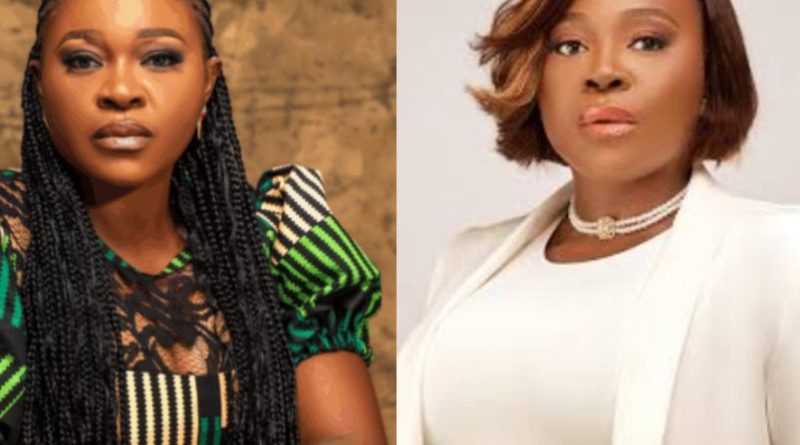Over 50% of voters are women but only 13% of candidates are
On Saturday, voters in Anambra State will elect a new governor to lead the state for the next four years.
As residents prepare for the polls, one question remains: Will this election bring progress for women’s political participation, or reinforce familiar patterns of exclusion, especially since Anambra is the only state in Nigeria to have been governed by a woman, albeit in an interim capacity?
Virginia Etiaba is Nigeria’s first female governor, having assumed the role on 3 November 2006 following the impeachment of her principal, Peter Obi, by the Anambra State House of Assembly. Ms Etiaba, who was the state’s elected deputy governor, was sworn in and held the position until February 2007, when the judiciary reinstated Mr Obi.

Despite being known for education, enterprise, and cultural heritage, Anambra’s record on gender representation in politics tells a familiar Nigerian story — one of promise restrained by persistent barriers.
The political field
The incumbent governor, Charles Soludo, is seeking re-election under the All Progressives Grand Alliance (APGA).
Mr Soludo was first elected on 6 November 2021 and sworn in on 17 March 2022. His first four-year term will end in March 2026.
The governor faces 15 other candidates from various political parties.
Analysts believe that four candidates are the major contenders in the poll: the incumbent governor, the candidate of the All Progressives Congress (APC), Nicholas Ukachukwu, the candidate of the Labour Party (LP), George Moghalu, and the candidate of the African Democratic Congress (ADC), John Chuma-Nwosu.
However, others believe the poll is a two-horse race between Mr Soludo and Mr Ukachukwu.
Unfortunately, of the 16 gubernatorial candidates, only two are women – Chioma Ifemeludike of the African Action Congress (AAC) and Ndidi Olieh of the National Rescue Movement (NRM), neither of whom is considered a strong contender.
This represents just 12.5 per cent of all the candidates. Meanwhile, six out of 16 parties (37.5 per cent) nominated women as their running mates.
The female running mates include Uche Ekwunife (All Progressive Congress), Veronica Okaro (Labour Party), and Blessing Okeke (Action Peoples Party).
Others are Ugboma Happiness (Boot Party), Chibuzor Obi (Zenith Labour Party) and Ezeadili Appolonia (Accord Party).
High voter registration among women
According to the Independent National Electoral Commission (INEC), 2.8 million registered voters are expected to participate in the 8 November election.
With 2,802,790 registered voters, Anambra State has a female majority, according to INEC. Out of 2,802,790 total voters, 1,430,323 (51.03 per cent) are female, while 1,372,467 (48.97 per cent) are male.
Students (29.31 per cent) represented the largest demographic among voters in INEC’s occupational distribution, followed by traders (18.47 per cent) and businessmen and women (17.83 per cent), amongst others.
Anambra State initially recorded 2,656,437 registered voters; however, an additional 140,370 new voters have since been registered through the continuous registration exercise, indicating a growing political engagement within the state.
Yet, this numerical strength has not translated into political representation. In the Anambra State House of Assembly, only two of the 30 members are women.
At the local government level, men dominate while women are often relegated to the so-called “women leader” roles within party structures. A recent research identifies electoral violence, the effect of godfatherism on women’s political participation, and poverty as some of the factors limiting women’s political participation in the state.
In the last governorship election in 2021, not much difference was documented. The electoral umpire recorded just two female candidates out of 18 contestants.
Several factors, including business interests, religious divide and party affiliations, influence politics in Anambra, the commercial hub of the South-east. The South-east state is rumoured to have the highest number of billionaires in the country, though no official data has confirmed this.
Nevertheless, the entrepreneurs, traders, and industrialists from the state wield both financial muscle and social clout capable of tilting electoral outcomes.
Profile of the female governorship candidates
Chioma Ifemeludike of AAC is a 36-year-old actress and filmmaker better known as IfeDike, who had previously served as the political party’s chairperson. She is the youngest candidate according to INEC.
She holds a first degree in political science from Anambra State University, now Chukwuemeka Odumegwu Ojukwu University. Born in Anambra State, she is a proponent of indigenous storytelling and is known for producing movies in the Igbo language. She has made films such as ‘Mortuary Gate,’ ‘Painful Truth,’ ‘Commissioner for Happiness,’ and ‘Plantain Girl.’
The filmmaker, who was raised by her mother after her father’s death, claimed, in 2021, that she had an intimate relationship with clergyman Johnson Suleman.
Her campaign promises are hinged on fairness, education, security and equity.
The second female candidate is Ndidi Olieh, 42, the flagbearer for the National Rescue Movement (NRM).
The 42-year-old aspirant is the state chairperson for her party. Her educational qualifications, according to INEC, include a first school-leaving certificate, National Examination Council (NECO), and a Bachelor’s degree from Nnamdi Azikiwe University, Awka.
Persistent gender imbalance
In Nigeria’s politics, women are barely represented. Almost half of Nigeria’s population is women, but gender equality remains a challenge.
None of Nigeria’s 36 state governors is a woman, while women make up less than five per cent of federal lawmakers. No state assembly has up to 30 per cent women representation, with many state assemblies having no single female lawmaker.
READ ALSO: Anambra 2025: INEC distributes sensitive material to 21 LGAs
Although women contribute significantly to Nigerian politics, especially on election days, their representation in political and decision-making positions has been very low.
Nigeria’s National Gender Policy, which advocates 35 per cent affirmative action in political appointments, remains largely unimplemented at all levels.
The Anambra governorship election only confirms what is observed in other parts of Nigeria: women are underrepresented in decision-making.


